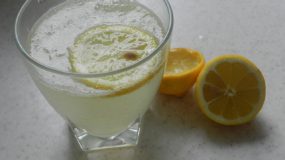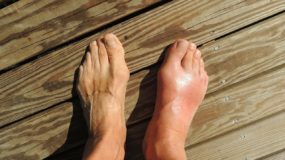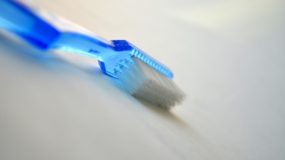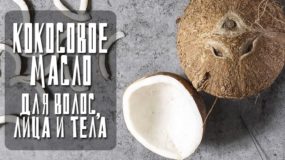Even the brightest smile will ruin the plaque. Mineralizing, it turns into tartar, which, as a rule, is formed in hard-to-reach places, on the inside of the tooth, on crowns and bridges. It can be seen with the naked eye - this is a solid formation near the gums or on the side surfaces, has a hue from light yellow to brown.
The problem does not cause pain, so many ignore it, but negligence threatens the loss of even healthy teeth.
What is tartar

Every day, a large amount of bacteria and food debris accumulate in the oral cavity, which settle on the teeth with a transparent yellow coating. During hygienic procedures, plaque is brushed off with toothpastes and a brush.
Soft plaque in hard-to-reach places with improper cleaning accumulates and crystallizes after some time. The conversion of plaque into a solid mineral takes 2-6 months. Having a rough base, a hard growth can grow, creating a single coating of several teeth.
Causes of Tartar
Tartar appears with irregular or improper hygiene procedures in the oral cavity, bad habits and body characteristics.
- An improperly selected toothbrush or toothpaste is ineffective for removing plaque.
- Incorrect dentition, minimal space between the teeth.
- The habit of chewing food on one side.
- Tea, coffee, sweet and oily contribute to the deposition of stone.
- When smoking, inhaled tar settling on the teeth binds food debris and bacteria. This coating is difficult to clean and mineralizes faster.
- Alcohol creates an acidic environment that destroys enamel and contributes to the formation of problems.
- The composition of saliva, endocrine disorders.
Danger
Tartar consists of food debris, bacteria and microorganisms that create an acidic environment at the point of contact with the tooth. This destroys the enamel and causes tooth decay.
Kinds
- Supragingival - in the place of contact of the gums and the tooth. More often on incisors of the lower jaw and large molars from the side of the cheeks. It has a light color from white to yellow. Smokers may have a darker color. You can meet even in adolescents.
- Subgingival - It is located between the gum and the tooth, forming a kind of pocket in which bacteria multiply. Found in patients after 35 years. Visible only on x-rays. The removal process is more complicated than with the supragingival form. Color - dark brown, greenish, black.
If the problem grows under the gum, inflammatory processes occur: gingivitis, periodontia, periodontal disease or stomatitis. With these diseases, pus, getting into the bloodstream, poisons the whole body, which can lead to inflammation of the endocrine glands and concomitant diseases.
Why shoot
Removal of the stone must be carried out regularly and be sure, this will preserve the health of teeth, gums, and will be the prevention of periodontal disease and other diseases. The result of cleaning will be a beautiful, snow-white smile.
Folk recipes and remedies
Contrary to popular belief that tartar can only be removed with professional tools in the clinic, there are proven recipes for traditional medicine to eliminate at home.
Black radish
Small pieces of radish chew for 5 minutes, after which they spit out and brush their teeth with paste. For the best effect, the radish is crushed to a mushy state and lemon juice is added. Make compresses on problem areas, hold for about 5 minutes, rinse your mouth with water and brush your teeth. These procedures must be carried out 2-3 times a day.
Horsetail
Horsetail copes well with splitting plaque. To do this, 2 tablespoons of dry powder pour 200 ml of boiling water. Rinse the oral cavity twice a day for 3-5 minutes until the desired result is achieved.
Soda
Soda is used as an independent tool, and as part of other components. To clean the problem areas, take 2 teaspoons of soda, add a little water, stir until porridge. Using a brush, porridge is cleaned with a coating of 4-5 minutes, and rinsed with water. You can add 1 to 1 kitchen salt to soda.
A good result can be obtained using this composition: 3 drops of lemon juice and 15-20 drops of 3% hydrogen peroxide are added to 1 teaspoon of soda. The mixture is applied only to tartar, without touching the gums. After 3-5 minutes, rinse with water and rinse your mouth. Use soda once a day, as it injures the enamel.
Hydrogen peroxide
With a solution of hydrogen peroxide, rinse your mouth. This method not only effectively dissolves tartar, but also disinfects the oral cavity. 5 ml of hydrogen peroxide (3%) are added to 100 ml of warm water. Rinse teeth for 2 to 3 minutes and rinse with clean water.
Once a week, you can do a compress with peroxide. Apply gauze (cotton wool) moistened with hydrogen peroxide to the problem areas for 3 to 4 minutes, then clean off with a hard toothbrush, without using toothpaste.
Salt
To get rid of mineral deposits, teeth are brushed twice a day. To do this, use a brush of high rigidity, salt is poured on it, and cleaned for 3-5 minutes. The effect is noticeable after 2 weeks of use.
Despite the naturalness of the components, folk remedies can not be called sparing for tooth enamel. It is also worth noting that these methods can deal with the supragingival stone, they do not affect the subgingival form.
Video Recipes
Professional removal methods
In addition to folk recipes, there are special tools for removing tartar, plaque and teeth whitening. Their peculiarity is prevention, gentle effect on enamel, restoration of enamel, which is important when carrying out home manipulations with teeth.
Dental floss
Dental floss is the best way to prevent dental plaque. Preference should be given to thin silk threads. The procedure is more effective before bedtime. The thread will help prevent the formation of stone and relieve bad breath.
☞ Price: from 150 rub.
Royal denta silver
Royal denta silver toothpaste contains silver and chitosan ions, which actively remove plaque. As a part of natural components - green tea extract and mint. Manufacturer Korea. Pasta is noticeable whitens teeth, protecting against the formation of tartar and struggling with its initial manifestations.
☞ Price: from 400 rub.
Global white
Global white - a system for strengthening enamels with a whitening effect. Manufacturers promise a noticeable result (lightening at 2-5 tones) in 2 weeks. When conducting the course at home, the enamel does not get damaged, and the present sensitivity is noticeably reduced. The set has a special brush, paste, gel, retractor, rinse aid, pencil and foam. Manufacturer - Russia. The effectiveness of the course is equivalent to professional whitening in the clinic.
☞ Price: from 800 rub.
Removal at the clinic

Due to various factors, it is not always possible to avoid the formation of tartar, with advanced forms of which it is ineffective to fight at home. Professional removal at the clinic is done by a periodontist, dentist or dentist. Having determined the degree of damage, the doctor determines the method of removal:
- mechanical removal;
- laser removal;
- ultrasonic cleaning;
- chemical etching;
- air abrasive method.
Air flow
Air flow is a modern method of removing crystalline deposits, which refers to air-abrasive exposure. The procedure is carried out on special Air flow equipment, where under the pressure of air and a special solution with abrasive micro particles, accumulation between the teeth and supragingival areas is eliminated.
Abrasive particles are often baking soda. After the procedure, the enamel acquires a smooth, natural color. The method is suitable for cleaning dentures, crowns, implants, for cleaning with curved or close teeth.
The disadvantage of this method is that subgingival stones are not removed. Air flow is contraindicated for bronchopulmonary diseases, individual intolerance to soda and citrus fruits, with thinning of enamel and high sensitivity of teeth, periodontitis.
Ultrasonic cleaning
Ultrasonic cleaning is one of the most popular procedures. It painlessly helps get rid of plaque and stone, and gives a feeling of cleanliness and freshness in the mouth. Such a cleaning has a beneficial effect on the condition of the gums and enamel without disturbing them.
After the procedure, increased sensitivity may appear, which disappears in a couple of days. In the early days, you need to brush your teeth after each meal. It is not recommended to use products with possible staining in the early days. Contraindications for ultrasonic cleaning include: diseases of the lungs, bronchi, cardiac arrhythmia, hypersensitivity, the presence of dental implants. Ultrasound can cause a loss of filling.
It is recommended to resort to professional cleanings no more than twice a year. In between, you need to monitor the condition of the gums, enamel, tooth sensitivity and do everything to improve their condition.
Tartar Prevention
Prevention is no less important than removal. After removal, prevention will be a series of simple but important procedures.
- Brush your teeth twice a day.
- Change brush after 3-4 months.
- Be sure to use dental floss at night.
- To give up smoking.
- Use chewing gum for several minutes after eating.
- Eat hard foods rich in fiber - carrots, apples.
- Limiting the use of sweets.
- A regular checkup at the dentist and timely treatment.
Tartar prophylaxis and plaque removal can be carried out at home, using both traditional medicine recipes and professional means. To solve more serious problems - removing plaque, strengthening enamel and treating bleeding gums, it is better to contact a dental clinic.










